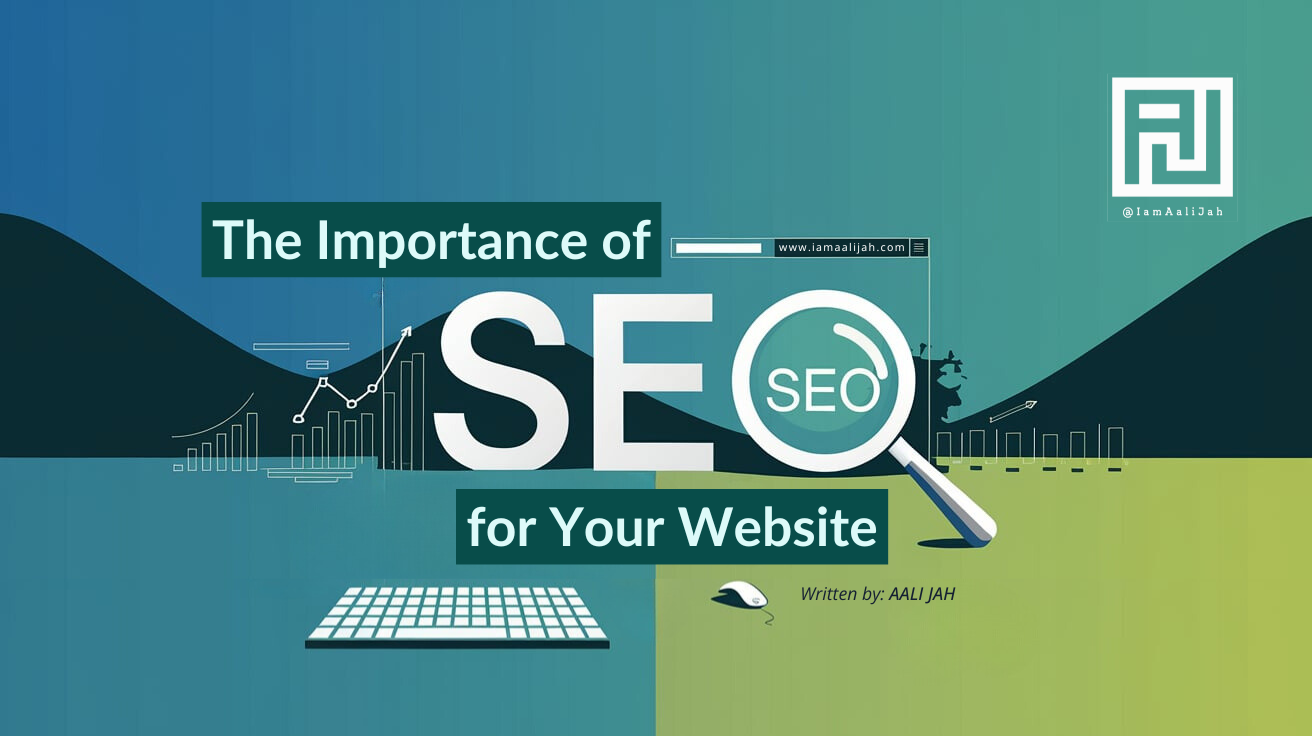
The Importance of SEO for Your Website

The Importance of SEO for Your Website
In today’s digital world, having a website is not enough. If you want to reach your target audience, drive traffic, and ultimately achieve your goals, you need to optimize your site for search engines. Search Engine Optimization (SEO) is the key to improving your website’s visibility on search engines like Google, which can significantly impact your business or personal brand.
What is SEO?
SEO, or Search Engine Optimization, involves the practice of enhancing your website’s content, structure, and overall performance to rank higher in search engine results pages (SERPs). The higher your website ranks, the more likely users are to click through to your site.
Why is SEO Important?
- Increases Organic Traffic: A strong SEO strategy helps your website rank higher, resulting in more organic (unpaid) traffic. This is essential for growing your website’s audience without relying solely on paid advertising.
- Builds Credibility and Trust: Websites that rank high on search engines are often perceived as more credible. A well-optimized site signals to users that your content is valuable and trustworthy.
- Improves User Experience: Good SEO isn’t just about search engines—it’s also about improving the user experience. Faster load times, mobile optimization, and easy navigation all contribute to higher rankings and satisfied visitors.
- Cost-Effective Marketing: Unlike paid ads, SEO drives traffic for free. While it may take time and effort, the long-term benefits of SEO far outweigh the initial costs. Once your site starts ranking, it can continue to bring in traffic without constant investment.
- Gives You a Competitive Edge: If your competitors are investing in SEO, you should be too. By optimizing your site, you can outperform competitors in search results, driving more traffic to your business instead of theirs.
How to Get Started with SEO
- Keyword Research: Start by identifying the keywords your target audience is searching for. Tools like Google Keyword Planner or SEMrush can help you find relevant keywords with high search volumes and low competition.
- Optimize On-Page Content: Ensure your content is valuable and relevant. Use your chosen keywords naturally within titles, headings, meta descriptions, and throughout your content.
- Technical SEO: Make sure your website is technically sound. This includes having a mobile-friendly design, fast load times, and a clear site structure.
- Build Backlinks: Backlinks (links from other websites to yours) are a strong ranking signal for search engines. Focus on creating high-quality content that others will want to link to.
- Monitor and Adjust: SEO is an ongoing process. Use tools like Google Analytics and Google Search Console to monitor your performance and make necessary adjustments over time.
By investing in SEO, you’re not just optimizing your website—you’re setting up your business for long-term success. Start optimizing today and watch your website grow!
Tags: blogging, digital marketing, Google Rankings, IamAaliJah, Marketing Tips, online business, Search Engine Optimization, SEO, SEO Strategy, Website Optimization, Website Traffic


